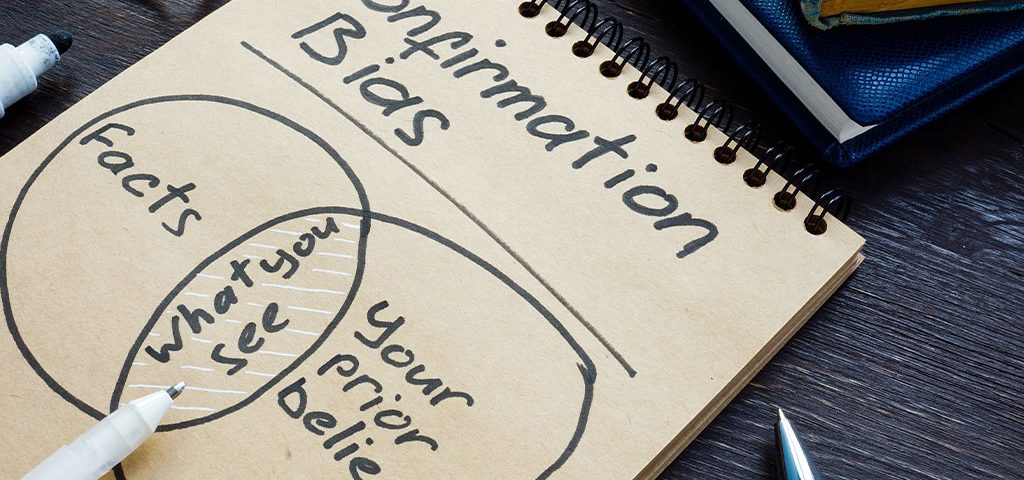While people learn to healthily grapple with judgment from peers, superiors, and even family and friends, it would do many of us well to be more aware of how we sometimes perpetuate this without even realizing it due to an unconscious bias. How we evaluate a person is consistently affected by our internal beliefs, experiences, and thought patterns. This can set us up to shut down a person without giving them a real chance. With technology and social media forcing our brains to process an inhuman amount of information at a time, it makes sense that some people seek to bypass the real effort it takes to get to know a person. To combat this, Banyan Boca Behavioral Health provides some common unconscious bias examples, along with tips for counteracting their presence when making important decisions.
The Definition of Unconscious Bias
The phrase bias refers to an internalized prejudice in favor of or against a person, object, or group. An unconscious bias is a social stereotype as it relates to a person or group of people, typically outside of the individual’s conscious awareness. These instances can result in positive or negative consequences, with unconscious bias being more common than the purposeful prejudice that much of our modern culture tries so hard to avoid.
Certain scenarios make the presence of unconscious bias much more likely, such as multitasking or having to make a major decision while under a time crunch. Read on to learn about some of the common mental shortcuts people take and the steps you can take to avoid this bias in your own experiences.
Questions about our Facilities or Programs?
Our admissions coordinators are available 24/7 to answer any questions you may have as you consider whether treatment at Banyan is right for you or your loved one.
Examples of Unconscious Bias and Ways to Avoid Them
Many scenarios can result in our implicit bias playing a part. The most crucial step that a person can take to combat this is practicing awareness and being self-critical in ways that allow us to identify when our internalized beliefs are affecting our actions. By understanding different forms of implicit bias, we can become more conscious of how our thoughts and decisions can affect those around us. Below are just a few unconscious bias examples and steps you can take to avoid their influence.
Affinity Bias
Also referred to as the similarity bias, this is the name given to the tendency that people may have to connect with someone whom they share similar beliefs, experiences, or interests with. For instance, it is more common for a leader to give a worker the benefit of the doubt if that worker looks, sounds, or behaves similarly to them. A way to combat this occurrence is by prioritizing a diverse hiring panel. Giving opportunities to different people with unique perspectives can reduce the affinity bias of one person that is doing the hiring.
Authority Bias
This takes place when one idea or opinion is granted more consideration because it is given by someone in a position of authority. While it makes sense to trust a person in authority, blindly doing so without consideration for the factors involved can result in negative outcomes. To avoid this, workers should be comfortable asking questions and doing their own research on a given topic. Considering the perspective of a superior is valuable, but so is our personal perspective.
Beauty Bias
As the name suggests, this refers to the favorable treatment of people considered physically attractive. It is no surprise that physical appearance plays a common role in how we perceive a person, but assuming a person’s skillset or intelligence level based solely on how they look is unlikely to be accurate most of the time. One process that companies can employ to avoid this bias in a hiring process is to omit photographs from resumes. This forces them to focus solely on the applicant’s qualifications and professional credentials rather than their looks.
Conformity Bias
This is people's tendency to change their personal beliefs and opinions to meld with that of a larger group, even if it is in direct opposition to how they feel. Whether it is due to peer pressure or a desire to be accepted, this bias can limit open discussion, creativity, and alternative perspectives that could be useful.
One of the most effective tactics to combat this is to employ anonymous surveys or votes in cases of decision-making. This grants far more freedom to people to express their true beliefs without the fear of judgment or ostracization.
Getting into treatment is easy with our free insurance verification
"*" indicates required fields
The Effect of Unconscious Bias on Mental Health
Sadly, these two instances often go hand in hand. While it is important to learn what we can from those above us, not being able to trust our own instincts can lead to anxiety, depression, and a general lack of self-worth. These biases can affect our relationships with those we care about and even potential relationships that we have not had the chance to develop yet. Bias can even play a negative role in a person’s refusal to seek out necessary help, like the programs at our Florida mental health rehab.
It is common for widespread misinformation and stigma concerning mental illness to lead people to refuse to acknowledge a problem is even present. Our team of professionals seeks to undo that stigma by providing effective treatments for various mental health disorders.
If you or someone you know is struggling, call Banyan Boca Mental Health at 888-280-4763 to learn about our services and how they can help.
Related Reading









